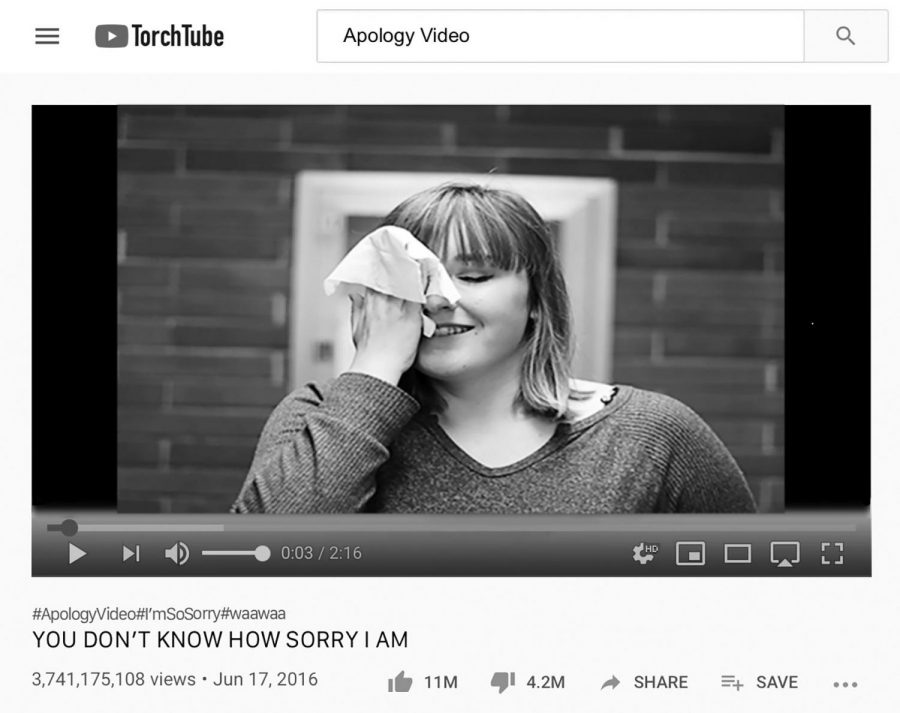Take a makeup wipe to perfection
Graphic by Mariel Mudrik. Photo by Sarah Boeke
In a “TorchTube” video, Ellie wipes off all her makeup to convey the importance of presenting the most sincere version of oneself.
Recently, I’ve gotten into makeup. I’m awful at it. Thankfully there’s an entire internet full of tutorials from beauty gurus to help. However, you can’t have makeup gurus without one thing: makeup scandals.
The really good, juicy, “break the internet” type of scandal usually goes something like this:
A previously innocent influencer is now faced with a career-ending controversy. Maybe this is caused by sketchy collaborations with makeup brands or some past action that has come to haunt them. Major news sites have started to pick up the story, spreading it to viewers who don’t know blush from bronzer. The guru starts losing fans, as thousands, even millions, of people begin to hit “unsubscribe.”
With everything falling apart, they do what every self-respecting vlogger does: turn on a webcam and cry.
It’s become a bit of a trend lately. The “beauty guru apology starter kit.” All you need is tears, no makeup, a camera and saying “I’m sorry” ten thousand times. Laura Lee, Jaclyn Hill, James Charles and dozens of others have attempted to win back the favor of the internet by posting an overdramatic apology video.
Something not understood by influencers, despite the groveling, sniffling and taking dramatic pauses to contain themselves, is that we, users of the internet, aren’t dumb. If you look at the comments on these videos, the main complaint is that it’s simply an attempt to save a reputation.
Oftentimes, the most fundamental part of an apology is forgotten: sincerity.
People can tell when you’re not being sincere. It’s kind of amazing that a society that places so much value on presenting the best version of yourself, even if it’s a fake version, also has a weird spidey sense for when someone else is faking it.
You don’t need a face full of foundation or highlighter to be like the gurus we all see online. While the way we hide our imperfections is not quite as dramatic as an internet meltdown, we all do simple things daily that make us look better. Think of trying to impress a teacher or a parent, acting “cool” to your friends or hiding the embarrassing parts of ourselves on a first date. And like beauty gurus, others can tell when we’re not presenting the truth about ourselves.
When you’re living in your own blogosphere, it seems too scary to be real. After all, we’re all trying to be perfect people. Our foundation is blended, our faces are beat and our flaws are hidden. But sometimes, it’s okay to not be perfect, and it’s definitely okay to stop pretending to be. Maybe we can all learn something from the abundance of cautionary internet tales. If you keep projecting something fake, eventually the projector is going to break.


